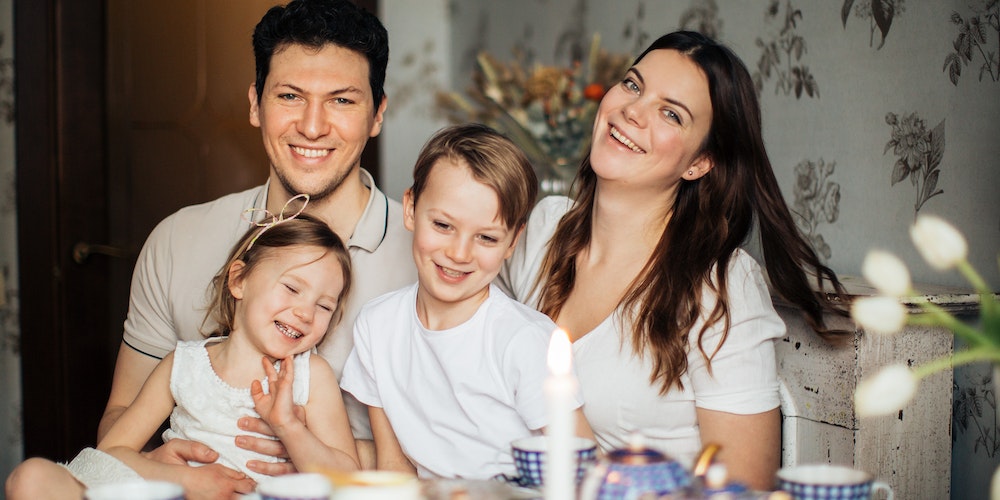
In this article, you’ll learn the habits of happy couples that are the secrets to a lasting relationship.
Introduction
Building a lasting and fulfilling relationship is a goal shared by many couples. However, it requires effort, commitment, and the development of healthy habits.
In this article, we will explore the 15 essential habits that happy couples cultivate to maintain a strong and enduring bond.
By adopting these habits, you can enhance your relationship and create a solid foundation for long-term happiness.
The Habits of Happy Couples
Here are 15 habits of happy couples that will build lasting relationships.
Habit 1: Effective Communication

Communication serves as the cornerstone of any successful relationship. Happy couples understand the importance of open and honest dialogue, which allows them to express their thoughts, emotions, and needs clearly.
By actively listening to each other without interruption and judgment, they create an atmosphere of trust and understanding. Effective communication also involves resolving conflicts peacefully and respectfully, as well as expressing appreciation and affection regularly.
Habit 2: Quality Time Together

Spending quality time together is crucial for building and nurturing a lasting relationship. Happy couples make it a priority to engage in activities that they both enjoy.
Whether it’s taking walks in the park, cooking together, or planning weekend getaways, dedicating time solely to each other strengthens the bond and fosters intimacy.
Disconnecting from distractions such as smartphones or work-related concerns allows couples to truly connect and deepen their connection.
Habit 3: Mutual Respect and Support
Respect and support are vital elements in any healthy relationship. Happy couples treat each other with kindness, courtesy, and consideration. They value each other’s opinions, perspectives, and boundaries.
Respecting individuality and personal growth is also key, allowing each partner to pursue their interests and goals.
Moreover, happy couples provide emotional support during challenging times, offering a safe and nurturing environment for their partner to share their struggles and seek guidance.
Habit 4: Shared Goals and Values

Couples who share common goals and values tend to have stronger and more fulfilling relationships. Happy couples take the time to discuss their aspirations, dreams, and values, ensuring alignment and a sense of shared purpose.
By working towards common objectives, such as building a family, pursuing a career, or contributing to their community, couples create a deep sense of unity and cooperation.
This shared vision provides a strong foundation for their relationship to thrive.
Habit 5: Intimacy and Affection

Intimacy and affection are vital components of a lasting and satisfying relationship. Happy couples understand the significance of physical and emotional closeness.
They prioritize intimacy by engaging in regular displays of affection, such as hugs, kisses, and cuddling.
Furthermore, they make an effort to keep the spark alive by exploring each other’s desires and maintaining a fulfilling sexual connection.
Expressing love and appreciation through both words and actions strengthens the emotional bond and fosters long-term happiness.
Habit 6: Honesty and Trust
Honesty and trust are the foundation of a strong and lasting relationship. Happy couples prioritize open and transparent communication, allowing them to build trust and maintain a deep sense of security.
They are honest with each other about their thoughts, feelings, and concerns, avoiding deceit or hidden agendas. Trust is nurtured through consistency, reliability, and keeping one’s promises.
By fostering an environment of honesty and trust, couples create a solid foundation for a lasting and fulfilling relationship.
Habit 7: Embracing Individuality
While it’s important to build a strong bond as a couple, it is equally important to honor each other’s individuality. Happy couples recognize and celebrate their unique qualities and interests.
They respect and support each other’s personal growth, allowing room for self-expression and pursuing individual goals.
Embracing individuality within the relationship creates a sense of freedom, acceptance, and appreciation, fostering a healthy balance between togetherness and autonomy.
Habit 8: Conflict Resolution

No relationship is without its challenges, and happy couples understand the importance of effective conflict resolution. Rather than avoiding conflicts or engaging in destructive arguments, they approach disagreements with a mindset of finding a solution that works for both partners.
Active listening, empathy, and compromise play key roles in resolving conflicts. Happy couples focus on understanding each other’s perspectives and finding common ground, striving for win-win outcomes that strengthen the relationship.
Habit 9: Shared Responsibilities
Sharing responsibilities is crucial for maintaining balance and harmony within a relationship. Happy couples understand the importance of dividing tasks and chores fairly, based on each partner’s abilities and preferences.
They work as a team, supporting each other in managing household responsibilities, financial obligations, and other shared commitments.
By sharing the load, couples alleviate stress and create an environment where both partners feel valued and respected.
Habit 10: Continued Growth and Learning
A lasting relationship is not stagnant but evolves and grows over time. Happy couples embrace lifelong learning and personal growth individually and as a couple.
They seek opportunities to explore new experiences, expand their knowledge, and develop their skills. This mindset of growth and learning allows the relationship to thrive, as partners support each other’s aspirations and encourage personal development.
By evolving together, happy couples create a relationship that remains dynamic and fulfilling.
Habit 11: Gratitude and Appreciation
Expressing gratitude and appreciation is a powerful habit that happy couples incorporate into their daily lives.
They recognize and acknowledge each other’s efforts, kindness, and love. Regularly expressing gratitude strengthens the emotional bond and creates a positive atmosphere within the relationship.
Happy couples take the time to show appreciation for both big and small gestures, cultivating a sense of mutual admiration and deepening their connection.
Habit 12: Maintaining Independence
While cultivating togetherness is important, maintaining individual identities and independence is equally vital.
Happy couples understand the significance of having personal interests, hobbies, and friendships outside the relationship. They encourage and support each other’s pursuits, allowing for personal growth and fulfillment.
By maintaining independence, couples bring fresh perspectives and experiences into the relationship, fostering a sense of vitality and excitement.
Habit 13: Laughter and Playfulness

Laughter and playfulness are essential ingredients in a happy and lasting relationship. Happy couples find joy in each other’s company and prioritize moments of lightheartedness.
They engage in playful activities, share inside jokes, and find humor even in challenging situations. Laughter acts as a natural stress reliever and strengthens the emotional bond between partners.
By embracing laughter and playfulness, couples create a relationship filled with joy and positivity.
Habit 14: Emotional Support
Providing emotional support is a fundamental habit in happy and lasting relationships. Partners are there for each other during both triumphs and tribulations, offering a listening ear, empathy, and encouragement.
Happy couples create a safe space for vulnerability, allowing each other to express their emotions without judgment.
They provide comfort, reassurance, and understanding, strengthening their connection and fostering a deep sense of emotional intimacy.
Habit 15: Respectful Disagreements
Disagreements are a natural part of any relationship, but happy couples approach them with respect and maturity.
They understand that differences of opinion are normal and healthy, and they aim to resolve conflicts constructively.
Happy couples avoid personal attacks and instead focus on discussing the issue at hand. They listen actively, seek understanding, and maintain a calm and respectful tone.
By engaging in respectful disagreements, couples build trust and create an environment where differing perspectives are valued.
Conclusion
Creating a lasting and fulfilling relationship requires the cultivation of healthy habits. By incorporating effective communication, quality time together, mutual respect and support, shared goals and values, intimacy and affection, honesty and trust, embracing individuality, conflict resolution, shared responsibilities, continued growth and learning, gratitude and appreciation, maintaining independence, laughter and playfulness, emotional support, and respectful disagreements, couples can nurture a strong and enduring bond. These habits, when practiced consistently, contribute to the happiness and longevity of a relationship.
Frequently Asked Questions
Q: How can honesty and trust enhance a relationship?
A: Honesty and trust form the foundation of a strong and lasting relationship. When partners are honest with each other and maintain trust, they create a safe and secure space where intimacy and vulnerability can flourish.
Q: Why is embracing individuality important in a relationship?
A: Embracing individuality allows each partner to maintain their sense of self within the relationship. It fosters personal growth, self-expression, and mutual respect, leading to a healthier and more fulfilling partnership.
Q: How can couples effectively resolve conflicts?
A: Effective conflict resolution involves active listening, empathy, and compromise. Couples should aim to find a solution that considers both partners’ perspectives and needs, fostering understanding and strengthening the relationship.
Q: Why is gratitude important in a relationship?
A: Expressing gratitude and appreciation nurtures a positive atmosphere within the relationship. It fosters a sense of mutual admiration and reinforces the emotional bond between partners.
Q: How can laughter and playfulness benefit a relationship?
A: Laughter and playfulness bring joy and lightheartedness to a relationship. They act as a natural stress reliever and deepen the emotional connection between partners.
Q: How can effective communication improve a relationship?
A: Effective communication enhances understanding, trust, and emotional connection between partners. It allows couples to express their needs, resolve conflicts, and maintain a healthy dialogue, fostering a deeper and more fulfilling relationship.
Q: Is spending quality time together essential for a lasting relationship?
A: Yes, quality time is crucial as it provides an opportunity for couples to strengthen their emotional connection, create shared memories, and deepen their understanding of each other. It nurtures intimacy and helps build a solid foundation for long-term happiness.
Q: Why is mutual respect important in a relationship?
A: Mutual respect forms the basis of a healthy relationship. It promotes a supportive and nurturing environment where both partners feel valued and appreciated. Respecting each other’s boundaries, opinions, and individuality is key to maintaining a lasting and fulfilling relationship.
Q: How do shared goals and values contribute to relationship success?
A: Shared goals and values create a sense of unity and cooperation in a relationship. They provide a common purpose and direction, allowing couples to work together towards their aspirations. Sharing goals and values strengthens the bond and fosters a deeper connection between partners.
Q: Why is intimacy and affection essential in a relationship?
A: Intimacy and affection nurture emotional closeness and strengthen the bond between partners. Regular displays of affection, both physical and emotional, help maintain a deep connection and sustain long-term happiness in a relationship.



